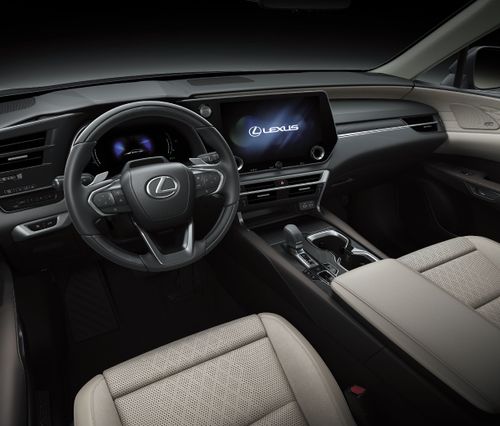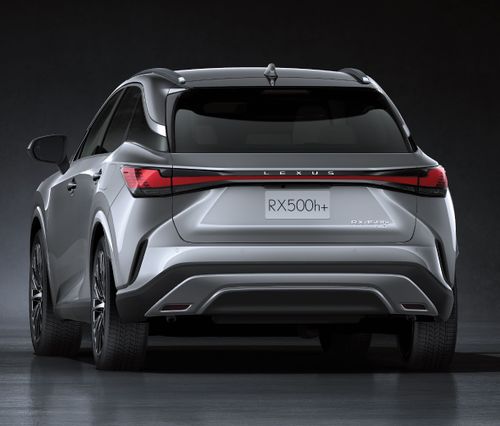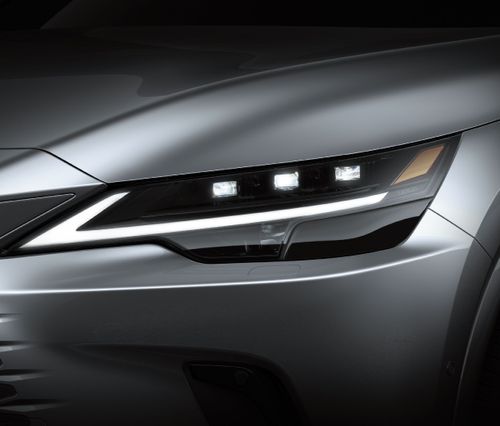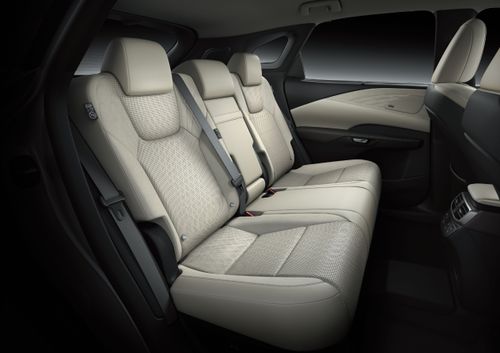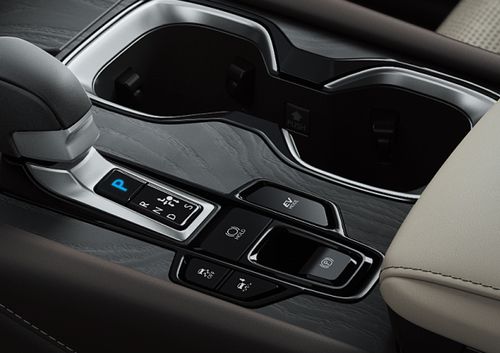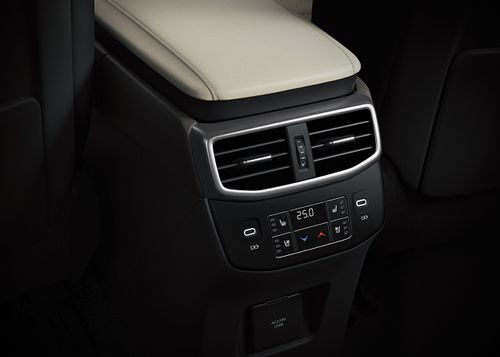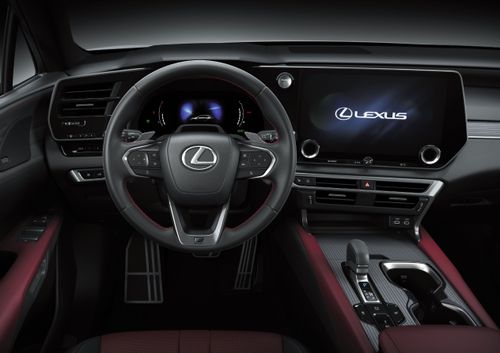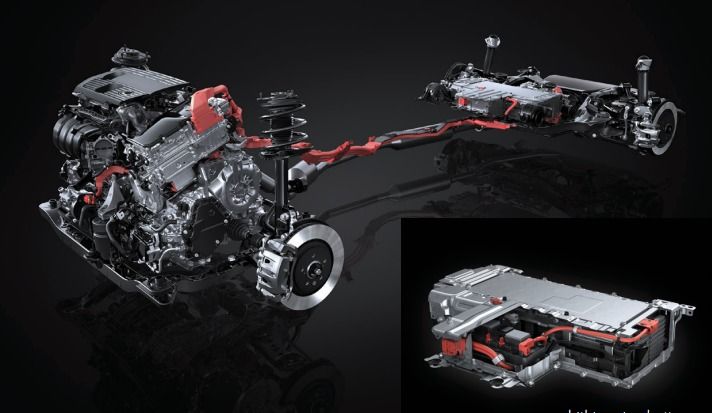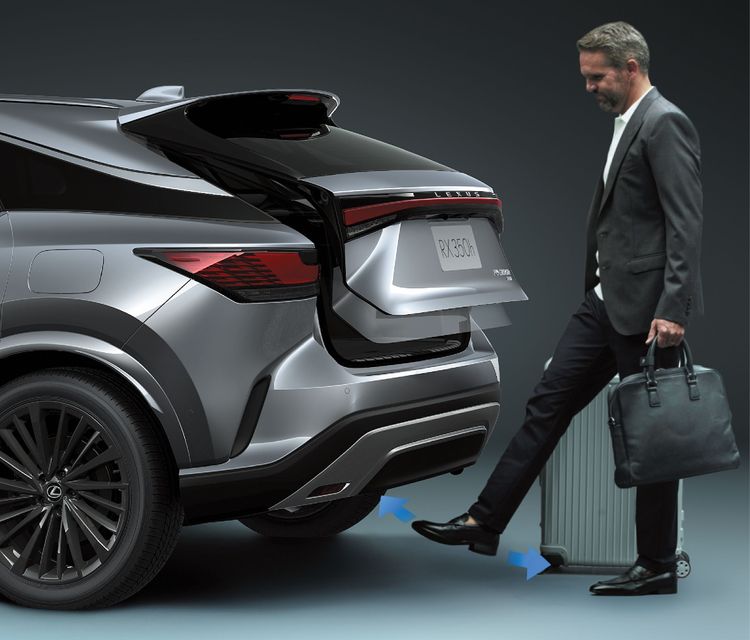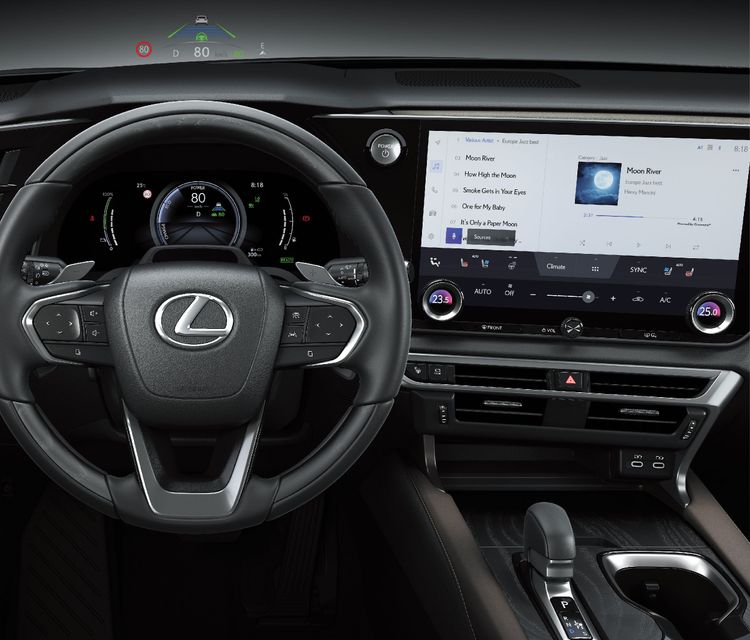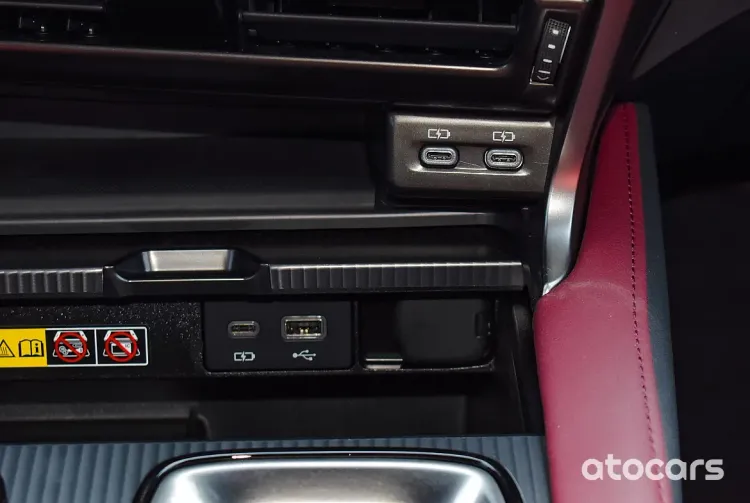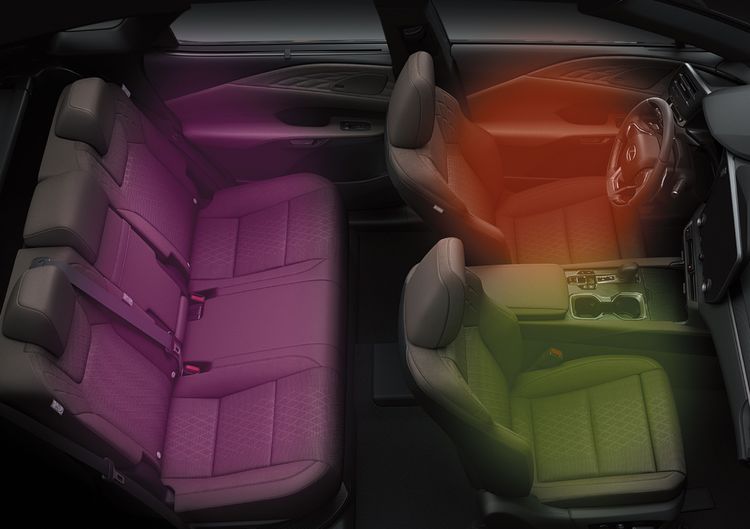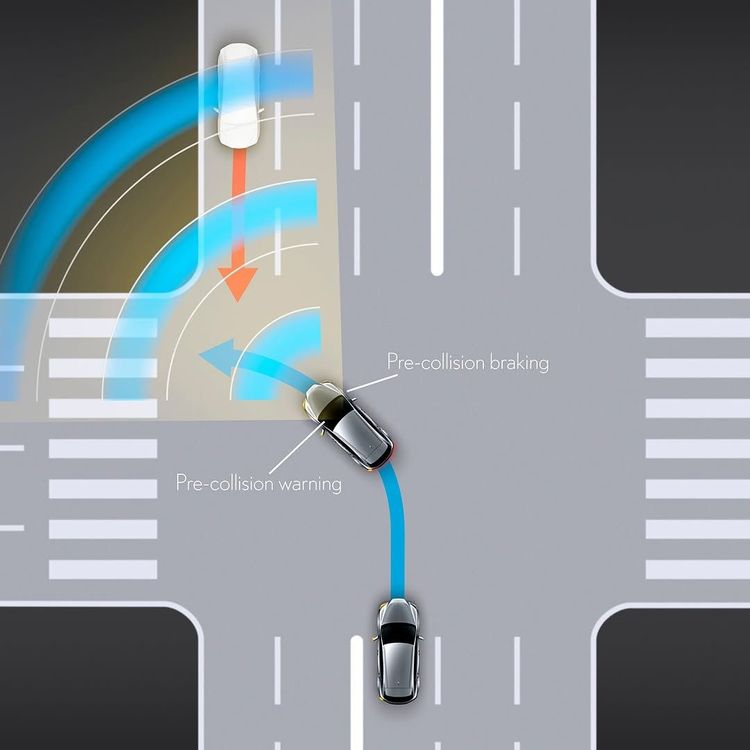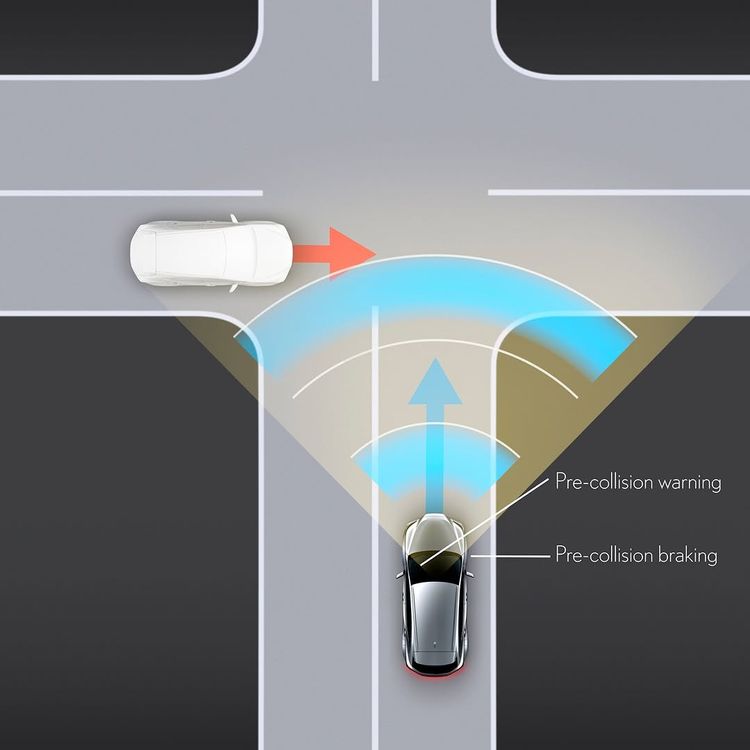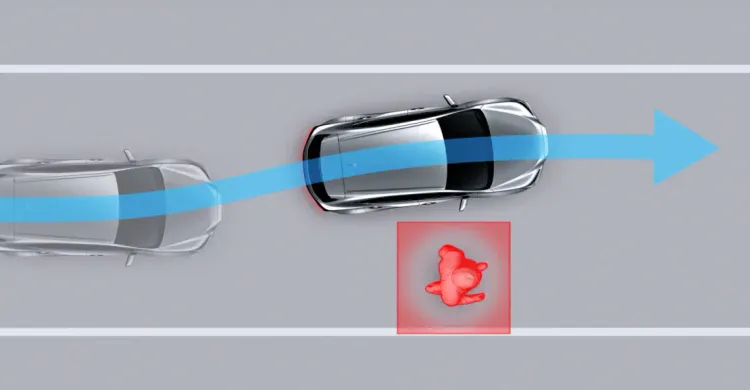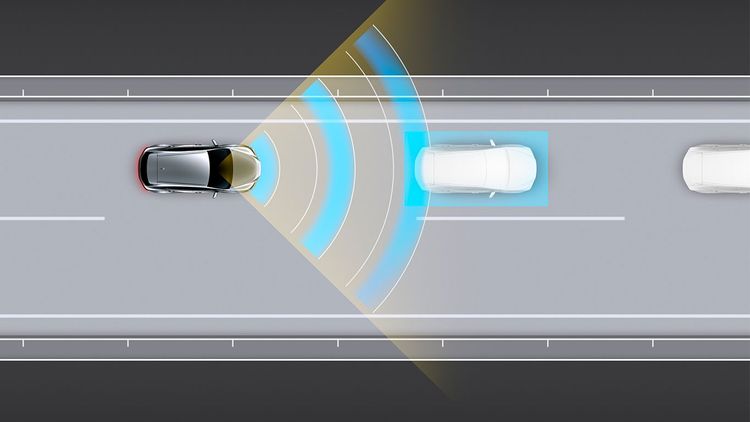When turning right or left at an intersection, if the millimeter-wave radar and monocular camera sensors detect an oncoming vehicle (in up to 2adjacent lanes) going straight when turning right or left, or pedestrians and bicyclists crossing from the opposite direction, it alerts the driver and activates the brakes to help avoid a collision and mitigate damage.*3
In addition to the normal Pre-Collision System operating range, the system also supports collision avoidance with vehicles and motorcycles crossing at intersections. If the system determines that a collision is likely, it alerts the driver and activates the brakes to help mitigate damage.*3
If the Emergency Steering Assist system detects a collision with a vehicle, motorcycle, pedestrian or bicyclist ahead is likely, there is sufficient space for the vehicle to be steered within its lane and the driver has begun an evasive steering maneuver, it assists steering to help enhance vehicle stability and prevent lane departure. In addition, even if the driver doesn’t move the steering wheel, an optional active steering function supports collision avoidance by steering the vehicle within its lane while gently braking.*4
In addition to maintaining a constant speed, Dynamic Radar Cruise Control uses millimeter-wave radar and monocular camera sensors to detect a vehicle driving ahead and maintain an appropriate distance between vehicles. When the driver operates the turn signal lamp at approximately 80km/h or over, preliminary acceleration is applied when following a preceding vehicle that is travelling slower than the preset vehicle speed, or preliminary deceleration is applied when changing lanes into a lane where there is a preceding vehicle that is travelling slower than the preset vehicle speed, helping smooth overtaking and lane change. Furthermore, when approaching and driving through a curve, a Curve Speed Reduction Function decelerates the vehicle, reducing the need to cancel Dynamic Radar Cruise Control operation, and enhancing driver convenience.



























